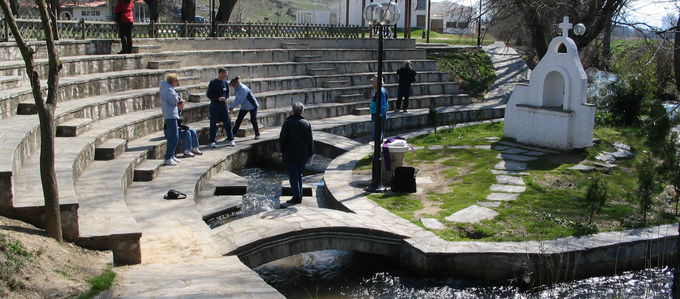Lydia: the first Christian in Europe
The detailed account of Lydia is quite remarkable, considering that it was such a male dominated world. In the Acts of the Apostles, Luke gives her prominent coverage: the first Christian in Europe.

Lydia, a dealer in purple cloth, who lived in the city of Philippi in Greece is regarded as the first documented convert to the Christian faith. In Acts we read: “Now a certain woman named Lydia heard us. She was a seller of purple from the city of Thyatira, who worshipped God. The Lord opened her heart to heed the things spoken by Paul. And when she and her household were baptized, she begged us, saying, ‘If you have judged me to be faithful to the Lord, come to my house and stay.’ So she persuaded us.”
The historical context is rather interesting. Being a true missionary, Paul first of all visited the important centres. This is how his second missionary journey brought him to Greece. He went to Philippi, Thessalonica, and Corinth—important trading centres and major centres of learning. Later, he also visited Athens, which was the cultural and spiritual centre on the Mediterranean at the time.
An intelligent and successful woman
When the gospel first started to be advanced, Paul and his companions came to Macedonia, a Roman province in the north-east of Greece. Outside of Philippi they come across a group of women. It was the Sabbath and the women were praying.
One of the women was Lydia, who was a dealer in purple dye. She was an emancipated, intelligent, and successful business woman. She was not a Jewess, but a woman who “worshipped God”, as it says in the biblical account. In other words, she was a Gentile who attended the services in the synagogue and kept the Law of Moses.
We can assume that she had a flourishing business, because purple was very expensive. The dye substance was won from the mucous secretion of sea snails and was then used to colour textiles. The Bible text treats her with great dignity. It says that the Lord opened her heart to heed the things spoken by Paul. She had herself baptized and became the first Christian convert in Europe.
What do we know about her? The name “Lydia” is a designation of origin, meaning “the Lydian woman”. This indicates that she was from the region of Lydia in the then Roman province of Asia (today this is western Turkey). The short biblical account offers quite a bit of information about her: her name, her profession, where she came from, where she lived, her religion, and details about her circumstances. These few lines are packed with information, which help today’s readers to classify her from a socio-historical aspect.
Near the ruins of Krinides in Philippi there is a baptismal site on the banks of the Gangites River (photo: Ian W. Scott / CC BY-SA 3.0). The access to the water is cross-shaped and there is a terraced slope, which serves as seating. This spot is traditionally held to be the place where Lydia was baptized. Nearby there is also a baptismal chapel built in Lydia’s honour. The Greek-Orthodox Church venerates her as a saint.
Faith is a gift from God
Lydia begs Paul to come and stay at her house, it says in the Bible. We can assume that the young Christian congregation in Philippi gathered at her house from then on, because when Paul and Silas were released from prison in Philippi later on, they went to Lydia’s house, where they met the other believers. Lydia symbolizes acceptance: she accepted the messenger of God and the word of God proclaimed by him. And God granted her faith.
The story of Lydia clearly shows that faith is a gift from God.
Article info
Author:
Date:
Keywords:
Peter Johanning
18.07.2016
Doctrinal instruction,
People/Personalities






